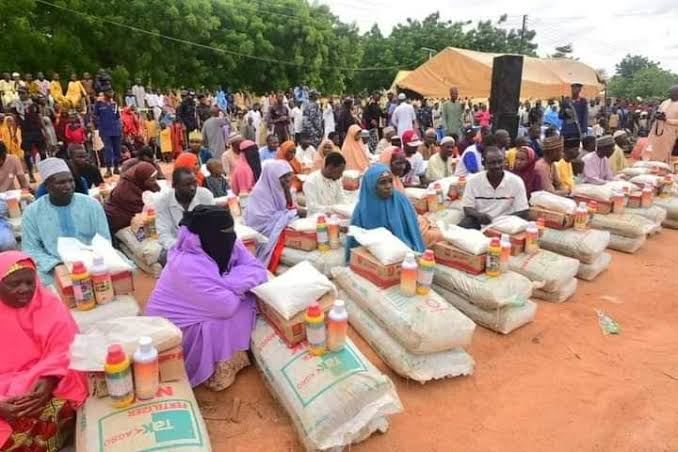The recent decision by the Federal Government of Nigeria to allocate a substantial N5 billion grant to each state and also the distribution of procurement of essential commodities like 100,000 bags of rice, 40,000 bags of maize, and fertilizers is a well-intentioned effort to alleviate the financial burden on citizens following the removal of the fuel subsidy. However, this initiative has sparked debates about its effectiveness and the need for more comprehensive solutions to address the cost of living.
The Grant in focus
Under this initiative, each state in Nigeria will receive a substantial grant to purchase food staples and fertilizers. A significant portion of this grant, specifically 48 per cent, is expected to be refunded to the Central Bank of Nigeria after a 20-month period, while the remaining 52% will be allocated for state grants. On the surface, this move seems to target immediate needs.
The distribution would not be enough to compensate for general inflation caused by the subsidy removal. Some of the measures being introduced by Governments are short-term relief which would not deliver permanent solutions even though those measures could cause more problems.
However, some state governments have also taken measures to cushion the effect on their workers and residents by declaring palliative like cash transfer programs, reduced costs on mass transport buses, reduction of workdays, etc.
Challenges and concerns
Some states that have received their palliative are already complaining about not getting the complete truckload of rice from the Federal Government, some are still setting up committees to help distribute the grains across the state, while those who have started distribution are already experiencing confusion and chaos.
A video was trending during the week to demonstrate the transparency in the sharing of the 1,200 bags of rice donated by the Federal Government for the people of Kwara State in 16 local governments. In the video, the narrator informed the crowd that out of the 1,200 bags of palliative rice, Adewole ward, which is one of the 12 wards in Ilorin West local government was given 8 bags and when it was further divided among the areas in the ward, Agunbelewo area, comprising several families got six bowls of rice. Now, how do members of that ward share 6 bowls of rice, and how long can it sustain them?
One of the primary concerns is the distribution of these resources. Ensuring that 100,000 bags of rice, 40,000 bags of maize, and fertilizers reach the intended beneficiaries in a fair and equitable manner is a significant logistical challenge. Corruption and mismanagement can lead to these resources not reaching those who need them most.
While providing food and fertilizers can offer short-term relief, they are not long-term solutions to the issue of the high cost of living. Nigerians need sustainable solutions that address the root causes of economic hardship.
Many argue that there are more effective ways to help Nigerians cope with the increased cost of living. Initiatives to create jobs, increase minimum wages, subsidize transportation, and reduce electricity costs would have a broader and more lasting impact.
The requirement to refund 48 per cent of the grant after 20 months is a step towards fiscal responsibility. However, ensuring this refund occurs as planned will require rigorous financial monitoring and accountability measures.
The Federal Government would have sent money directly into people’s accounts via their BVN and for those who do not have bank accounts, it would have been an opportunity for them to open accounts.
Approach to alleviating suffering
To truly ease the suffering of Nigerians grappling with the increased cost of living, a multifaceted approach is necessary. Here are some key considerations:
Government at national and sub-national levels should encourage policies that promote job creation, especially in sectors with a high potential for growth. This can help reduce unemployment rates and provide more stable incomes for citizens.
There is also the issue of wage increases. Although the Federal Government has said it will increase the Minimum Wage, that has not been implemented yet. Raising the minimum wage can provide immediate financial relief to workers and help them cope with rising prices.
Subsidising public transportation can lower commuting costs for citizens and make essential services more accessible while making electricity more affordable can also ease the burden on households and businesses. Through collaboration with the private sector, social safety nets targeting the most vulnerable populations should be created to ensure that they have access to basic necessities.
While the Nigerian government’s grant to purchase rice, maize, and fertilizers is a well-intentioned step, it’s crucial to address the broader structural issues that contribute to the high cost of living. Sustainable solutions, such as job creation, wage increases, transportation subsidies, and energy cost reduction, are essential for long-term relief. By taking a holistic approach, Nigeria can build a more resilient and prosperous future for its citizens.
